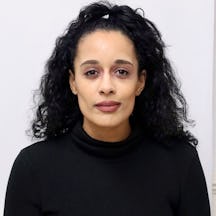Fuelled by frustration with society’s disregard for disabled people’s sexual needs, Roxy Murray is determined to talk openly about sex. Here Roxy dives into the raw, intimate truths about pleasure as a disabled person, sharing an unapologetic and explicit journey through her frustrations and desires.
Disability, desire, and pleasure unlocked
Words by Roxy Murrayportraits by Darren Blackaverage reading time 5 minutes
- Article
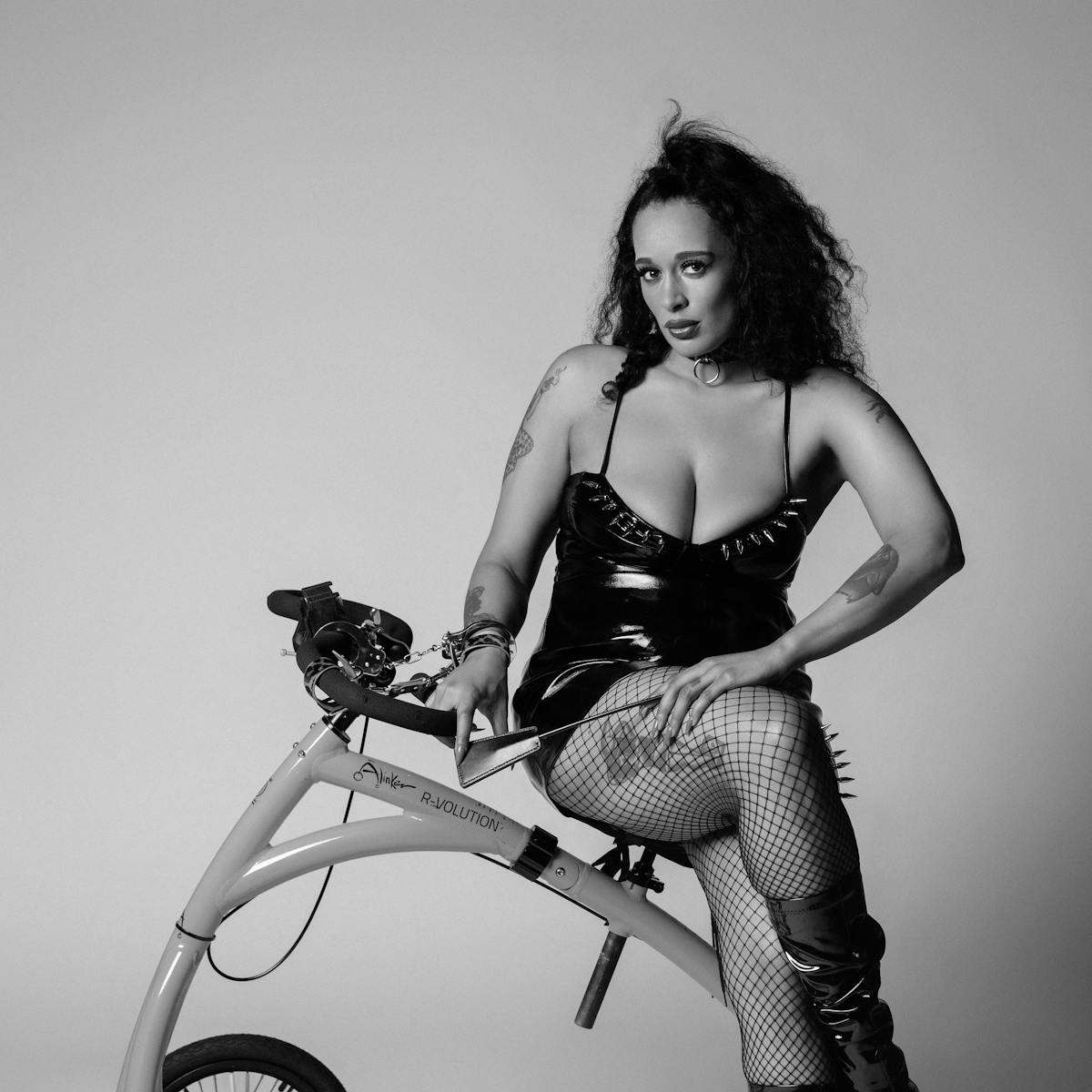
In my late 20s I was diagnosed with multiple sclerosis. As I adjusted to the emotional weight of being told I had an incurable disease, I decided to have a night out. I wanted to feel the spark of the youth I was scared I was losing.
Entering the dimly lit bar, I found my friends and I tucked my mobility aid under the table, allowing myself a brief moment of forgetting.
The bar filled with the low throbbing bass and haunting vocals of Siouxsie and the Banshees’ ‘Cities in Dust’. The music was hypnotic and seductive, things I hadn’t felt in a while.
The smell of a sweaty beer-soaked carpet – typical of Camden on a Saturday night – filled my nose.
Glancing up, I noticed someone watching me from across the bar, a hint of flirtation in their gaze. Their eyes met mine. Excited, I could feel the desire for connection building.

“Glancing up, I noticed someone watching me from across the bar, a hint of flirtation in their gaze. Excited, I could feel the desire for connection building.”
A silent conversation of exchanged looks, small smiles and held stares made the room feel warm and charged. I felt a surge of confidence and started to imagine the possibilities of a playful conversation, the thrill of feeling seen and wanted, and the delicious uncertainty of where it might lead.
Bladder urgency kicking in, I realised I needed the bathroom. I reached down for my cane, stood up and leaned into my supportive device.
Instantly, I felt the atmosphere shift!
Glancing back over, I could see the spark of interest in their eyes had gone; their posture changed, their intrigue vanished. They looked away, as if my desirability had dissolved the moment I reached for my cane.
It stung: a sharp reminder of the unspoken biases I now encountered regularly.
But I knew it was them, not me. It reflected their own unease with something they hadn’t thought they would ever need to consider: the possibility of being intimate with someone with a disability.
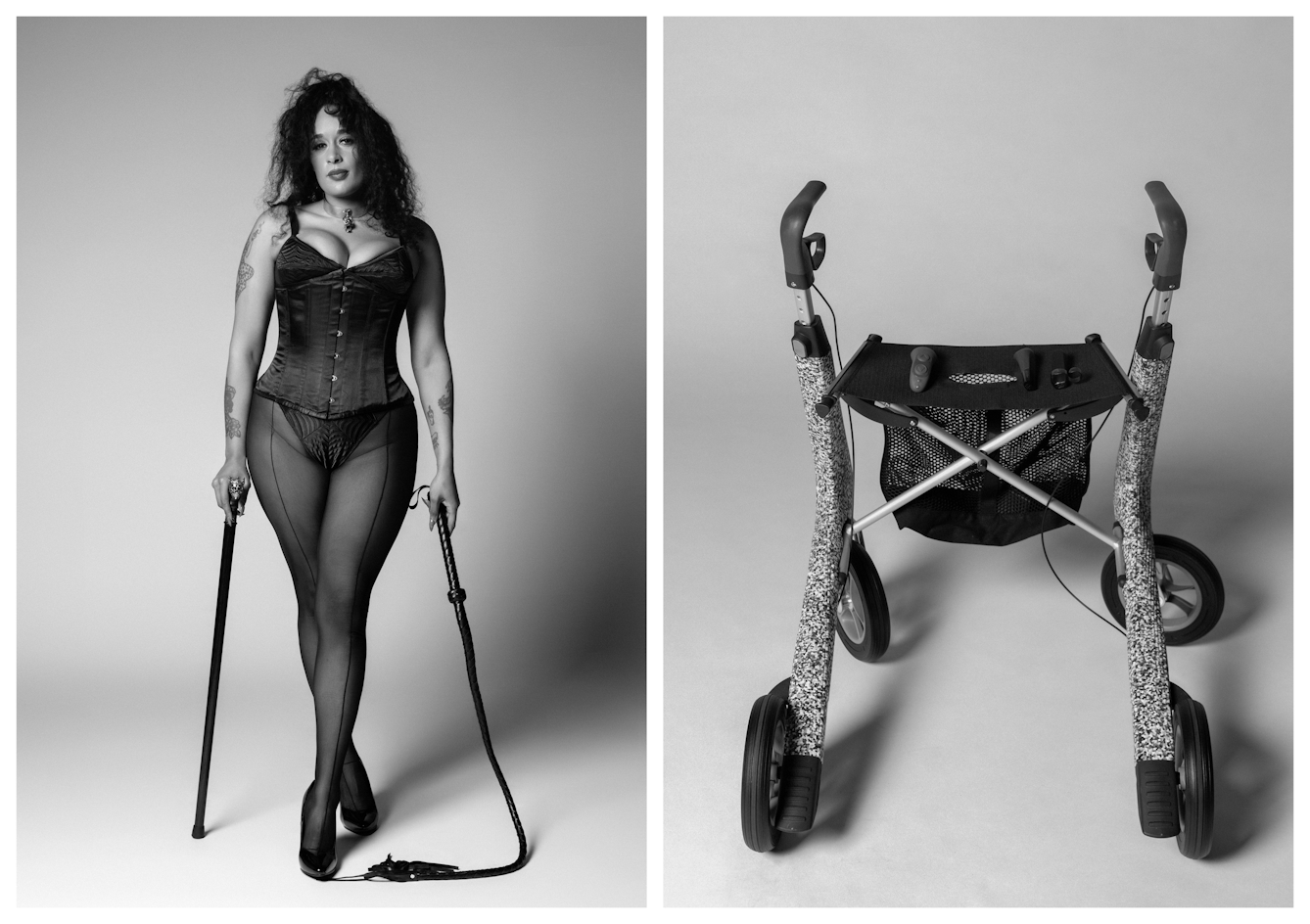
“Glancing back over, I could see the spark of interest in their eyes had gone. They looked away, as if my desirability had dissolved the moment I reached for my cane.”
Radical acts of sexual defiance
Yes, I am disabled.
Yes, I am pansexual.
And yes, I have sex.
There’s an entrenched notion that disabled bodies are not sexual, desirable or worthy of joy. That disabled, mixed-heritage and queer people like me aren't sexual beings. We’ve been taught that our bodies are to be pitied and ignored, not celebrated or desired.
It’s a belief that has deep historical roots and one I have to work hard daily to resist. Being able to fully own my sexuality has been a long journey. I have to remind myself every day that I am a beautiful sexual being, and that my desires and kinks are not dirty and won’t remain unfulfilled because I’m disabled.
When I was diagnosed with multiple sclerosis (MS), no doctor ever mentioned how it would affect my desire for sex and what the future of sex would realistically look like for me. Instead, they focused on medications and whether I planned to have children, as if my sexuality could be reduced to heteronormative reproduction.
The disregard for disabled people’s joy – especially sexual joy – within the medical community fuelled my frustration. I became determined to raise awareness among others with MS, demanding the acknowledgement of pleasure as a crucial aspect of wellness for disabled people.
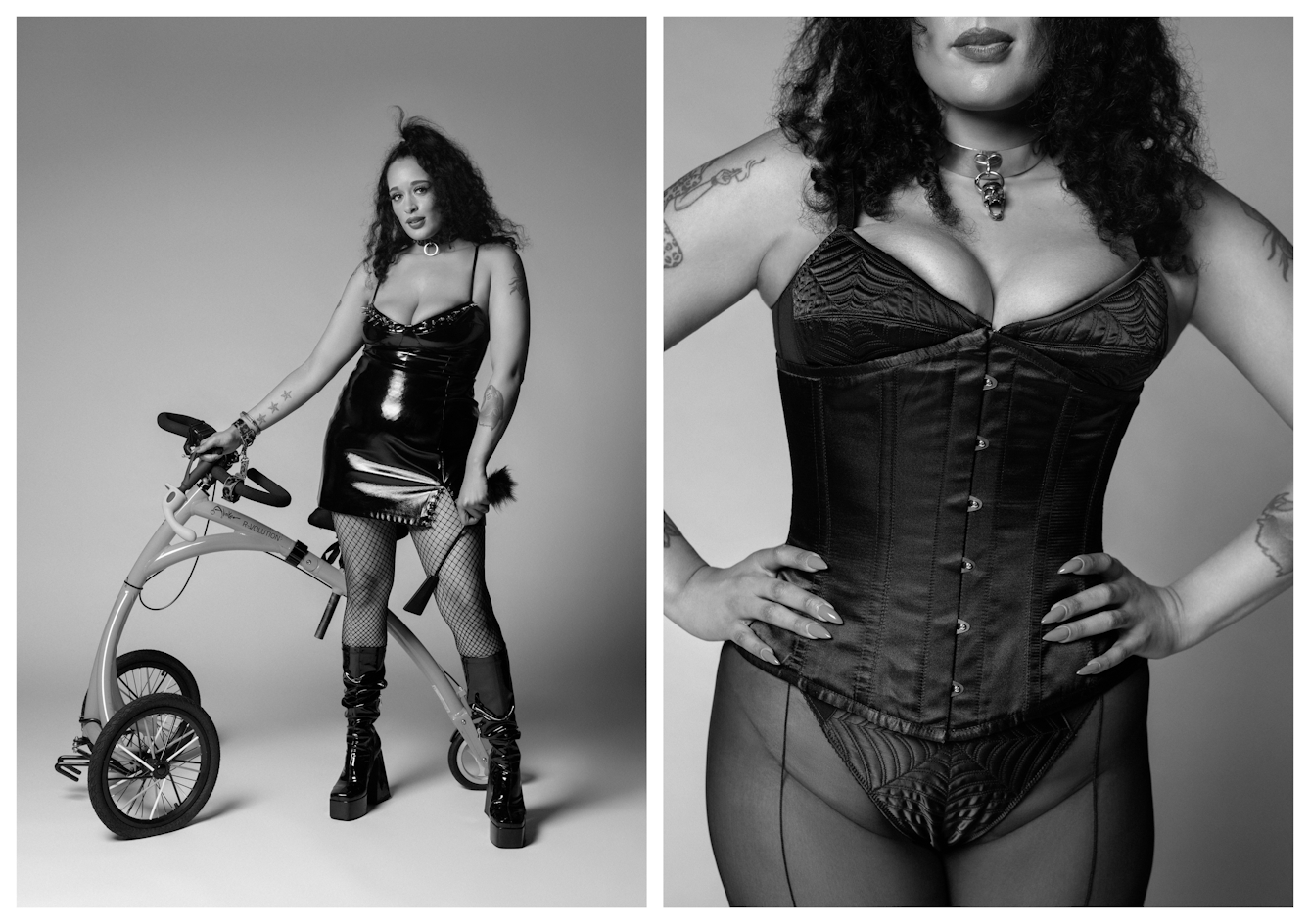
“I have to remind myself every day that I am a beautiful sexual being, and that my desires and kinks are not dirty and won’t remain unfulfilled because I’m disabled.”
My mission is simple: celebrating and advocating for a future where we don’t police disabled people’s sexual desires and right to be sexually empowered.
This is why I unapologetically embrace my sexuality. It’s why I choose to engage in radical acts of defiance and openly express my desires. I want you to trust me with my own pleasure and my love of BDSM. Don’t descend into a moral panic if I want to be handcuffed or spanked. I can control my pain in a way that feels good for me.
Innovating to unlock sexual pleasure
Through my own sexploration, I’ve collaborated with creators of adaptive sex toys, companies like Hot Octopus and Enhance the UK, that want to give the disabled community more satisfying sexual experiences. For example, things like positioning cushions and hands-free adaptive vibrators allow people to explore different positions with comfort and creativity.
These innovations go beyond practicality: they affirm our right to sexual expression and joy. But although there has been some progress, there’s still a long way to go, especially when catering for non-binary, trans and kink communities, and people who experience sensory overload.
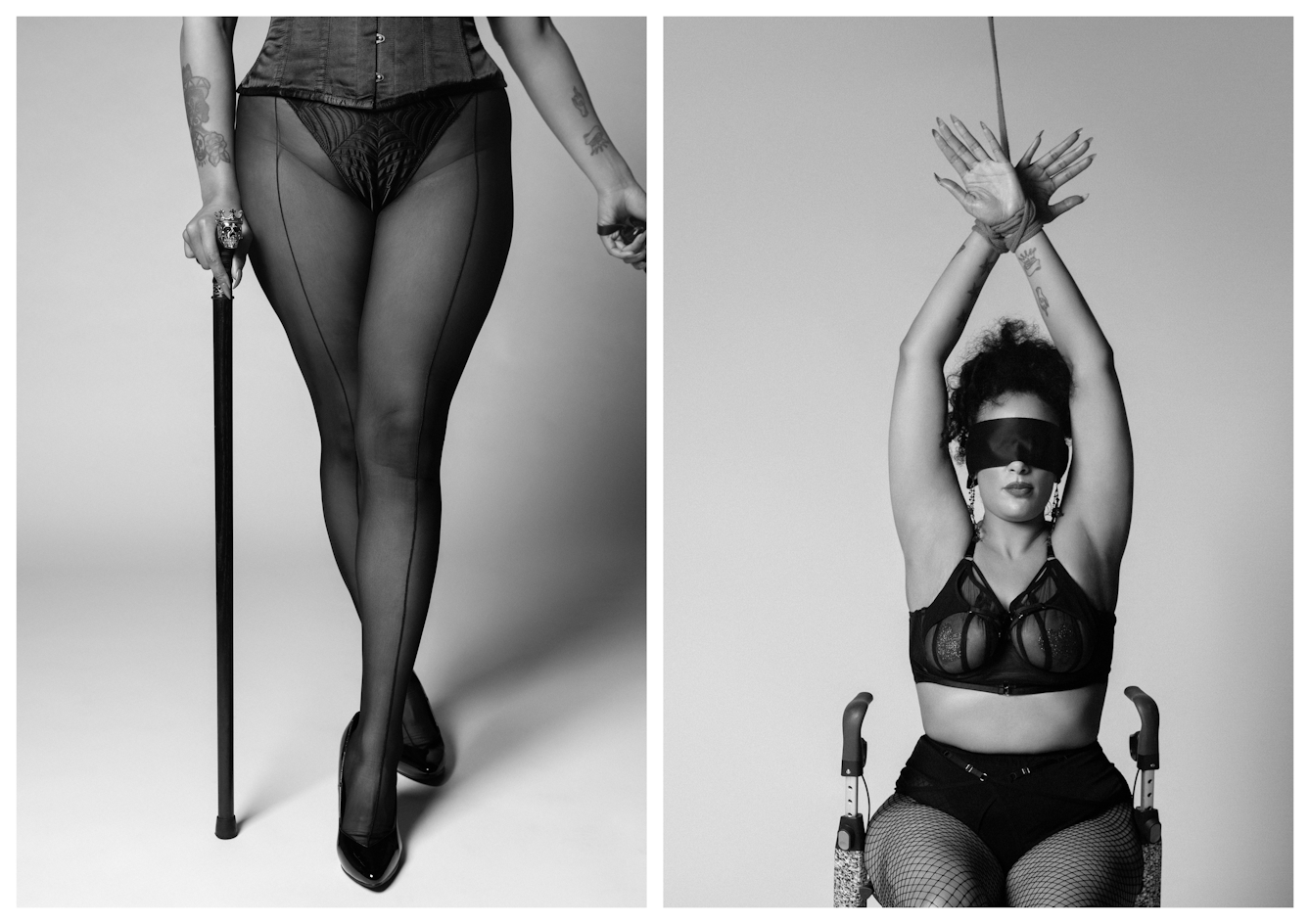
“In a world that tries to censor disabled bodies and deny us visibility, every act of sexual expression becomes an act of defiance.”
Adaptive lingerie gives us the ability to dress and undress with ease, but most designs have very little sexual energy. Front-fastening, neutral-colour bra-and-pantie combos are hardly provocative, while accessible strap-ons and strap-on boxers aren’t even design considerations yet.
Embracing disabled sexuality
Reclaiming sexual pleasure isn’t just a personal act, it’s a radical one. In a world that tries to censor disabled bodies and deny us visibility, every act of sexual expression becomes an act of defiance.
We must continue to push against narratives that render us invisible or undesirable. By openly expressing our desires and celebrating our sexualities, we pave the way for a broader societal shift: one that recognises our humanity in its fullest complexity.
Doing this, we advocate not just for ourselves but for future generations of disabled people. We assert that we are more than medical cases or vessels for reproduction. We are sexual beings, deserving of recognition, respect and joy.
About the contributors
Roxy Murray
Roxy Murray is an internationally recognised advocate for disability rights, adaptive fashion and radical inclusivity. A proud member of the BBC 100 Women 2024 and Disability Power 100, she uses her platform to champion change for disabled and chronically ill individuals. Roxy shares raw stories on navigating disability in her podcast, ‘Sick and Sickening’, and, drawing on her background in fashion, empowers others to embrace adaptive fashion with confidence. Featured in Vogue UK and Refinery29, Roxy is a powerful voice on diversity, inclusion and intersectionality, pushing for systemic change across industries.
Darren Black
Originally from London, Darren is now a Berlin-based fashion photographer with over 17 years of experience. In Berlin, he has found a city that celebrates creativity, freedom and the avant-garde. Darren’s work is deeply influenced by the energy of the club scene, focussing on the intersection of fashion, sexuality and nightlife. His photography is a love letter to the queer and sex-positive community, capturing the raw, unfiltered moments that define this vibrant culture. His work invites the viewer to explore the multifaceted world of sexual liberation, queer identity and fashion. As Darren continues to explore the ever-evolving landscape of this culture, he remains dedicated to pushing boundaries and celebrating the art of self-expression in all its forms.
